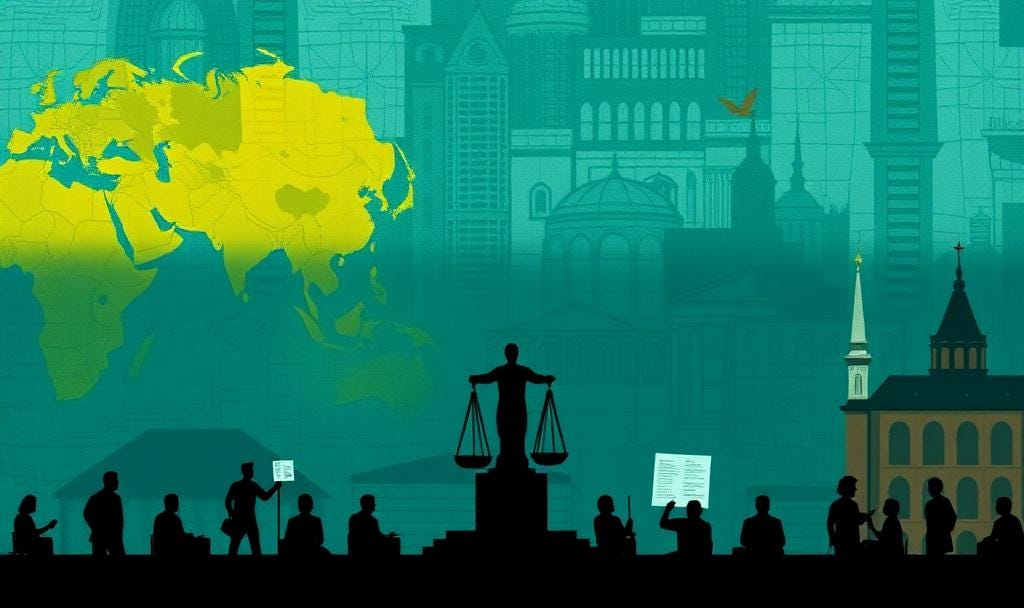Courts Without Borders: The Rise of Transnational Justice
Why local crimes can have global consequences, and why the world is turning to international courts
What happens when crimes cross borders, but justice stops at them?
From war crimes in Ukraine to environmental destruction in the Amazon, from genocide in Myanmar to corporate bribery spanning continents, the world faces crimes that are too big, too interconnected, and too political for any single nation’s courts to handle alone.
This is why transnational justice is on the rise.
✅ The International Criminal Court (ICC) prosecutes individuals for genocide, war crimes, and crimes against humanity, no matter where they happen.
✅ UN tribunals have tried crimes from Rwanda to former Yugoslavia.
✅ Hybrid courts like the Special Court for Sierra Leone blend international and national judges.
✅ Even domestic courts sometimes use universal jurisdiction to try torture, slavery, and war crimes committed elsewhere.
Yet international justice faces major challenges:
Powerful states refusing to cooperate or even threatening prosecutors
Political vetoes blocking referrals
Funding gaps and logistical nightmares
Accusations of neocolonial bias
But here’s the truth:
Without transnational justice, impunity thrives.
Because when leaders can commit atrocities knowing they’ll never face trial at home, justice isn’t just denied, it’s destroyed.
As lawyers, policymakers, and citizens, we must ask:
👉 Should justice stop at borders?
👉 Or should the world recognize that human rights violations are everyone’s business?
Because in an interconnected world, crimes without borders demand courts without borders.
⚖️ Want thoughtful, rights-focused perspectives on law that go beyond borders? Subscribe for weekly reflections.
📢 Share this if you believe justice shouldn’t end at the border.
💬 Comment: Should international courts have more power or less? Why?
#JusticeWithAngana #InternationalLaw #TransnationalJustice #HumanRightsLaw #GlobalJustice #SaturdayLegalLens #WomenInLaw #ComparativeLaw #ICC #UniversalJurisdiction





